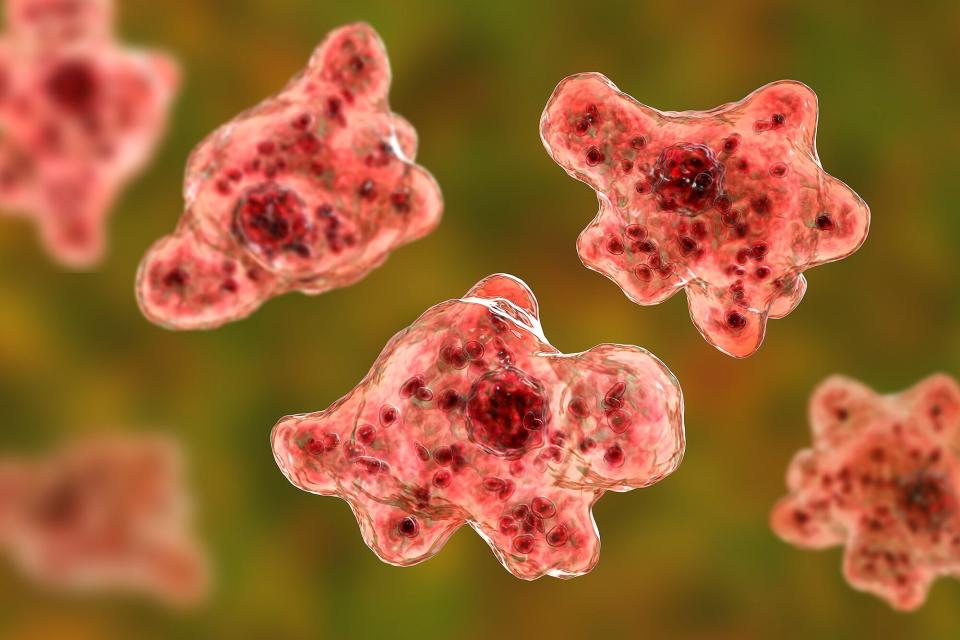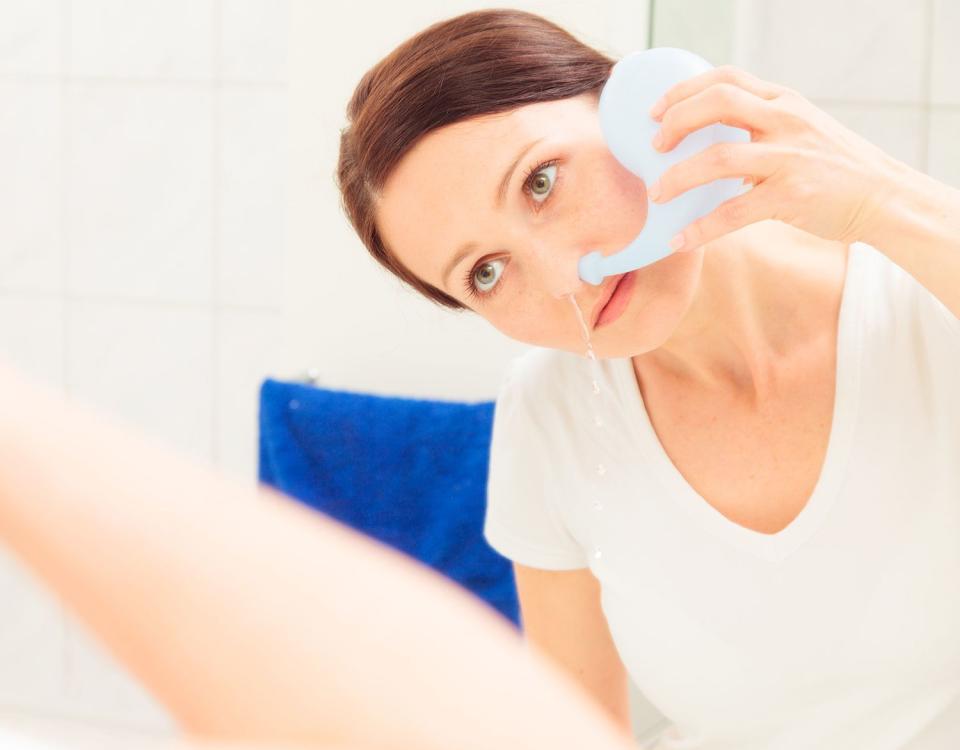Florida Man Dies of Brain-Eating Amoeba After Rinsing Sinuses with Tap Water
Dotdash Meredith and Yahoo Inc. may earn commission or revenue on some items through the links below.
A Florida man has died from Naegleria fowleri, or brain-eating amoeba, after rinsing his sinuses with tap water, according to the Florida Department of Health.
The Centers for Disease Control and Prevention stated that the patient, who has not been publicly identified, died Feb. 20 and had rinsed their sinuses daily with unboiled tap water leading to the infection, which is only contracted through the nose.
The agency said in a release that they are investigating the cause of the infection and monitoring any indications of additional infections. This is reportedly the first case of brain-eating amoeba this year and the first-ever United States case reported during winter months.
Naegleria fowleri, commonly referred to as brain-eating amoeba, is a single-celled living organism that can cause a rare and almost always fatal infection of the brain called primary amebic meningoencephalitis (PAM). According to a CDC report, only four people in the U.S. out of 151 from 1962 until 2020 have survived the infection.
Brain-eating amoeba is most commonly found in warm fresh waters such as lakes, rivers and hot springs. It also resides in poorly maintained or minimally chlorinated swimming pools, staying in these habitats to feed on bacteria.

Getty
Symptoms of brain-eating amoeba generally start one to nine days after nasal exposure and many people die within 18 days of showing symptoms, according to the CDC. These include severe headaches, fever, nausea and vomiting in the first stage and stiff neck, seizures, altered mental status, hallucinations and a coma in the second stage.
The Florida Department of Health assured that people can't get infected with brain-eating amoeba by drinking tap water. The infections only arise when contaminated water enters the body through the nose.
Officials also urged people to use sterile water when doing a sinus rinse, typically done with the neti pot — a teapot-shaped device used by tilting the head to the side and pouring either sterile water or a saline solution into the upper nostril so the mucus drains out the lower one. The process is then repeated on the other side.

Getty
RELATED: How to Safely Use a Neti Pot — After a Woman Died from a Brain-Eating Amoeba
"It has to be sterile water," Dr. Travis Stork, an ER physician, host of The Doctors and a member of PEOPLE's Health Squad, previously explained. "These amoeba infections are rare but not unheard of, which is why the water must be sterile. Always follow directions!"
Using water that has gone through a Brita water filter is not sufficient — it's still tap water, and is not sterile. Instead, use pre-packaged, certified sterile water found at a local pharmacy or drugstore. Stork also emphasized that the neti pot needs to be regularly cleaned as well to ensure that it's fully safe.
If using a neti pot feels too risky, there are similar products that make the process easier."Another option for nasal irrigation is to use over-the-counter nasal saline rinses like Simply Saline nasal mists," Stork added.

